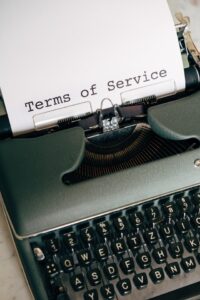Contents
- 1 Introduction
- 2 Property Insurance
- 3 Liability Coverage
- 4 Professional Liability Insurance
- 5 Worker’s Compensation
- 6 Inland Marine Insurance
- 7 Boiler and Machinery Insurance
- 8 Crime Insurance
- 9 Employment Practices Liability
- 10 An insurance policy is a contract between a business and an insurer to protect against financial loss.
- 11 Conclusion
Introduction
What’s included in Business Insurance? Just as you have different types of insurance for your home, car, and other personal possessions, you need to take steps to protect your business as well. When shopping for business insurance, it’s important to make sure you’re getting the right coverage for the risks that face your company.
Property Insurance
Business property insurance is designed to cover the cost of damage to your business property, including buildings and equipment. The type of coverage you choose will depend on what type of business you have, how much money you want to spend on coverage, and whether or not you have employees who are using the property.
Property insurance can be purchased for a single item or for an entire building. If your business is based out of one building that houses all operations and equipment, it makes sense to purchase a policy that covers the building itself. If there are multiple locations where employees work and store their belongings, then this may require purchasing separate policies for each location instead.
Property insurance can cover damage from fire, flood (water), storm (high winds), theft and vandalism as well as burglary or robbery if someone breaks into your offices at night when no one is present there anymore than just regular hours during normal working days so this would include weekends too!
Liability Coverage
Liability Coverage is designed to protect you from claims of negligence. It covers bodily injury and property damage inflicted by your business, and it pays the costs of defending against lawsuits.
For example, suppose that an employee of your company accidentally spills oil on a client’s car while changing the oil in their vehicle. The client’s car is damaged by the spilled oil and she sues your company for negligence, claiming that her car should have been cleaned properly before handing it back over to her after the service was completed (if only!). Liability coverage would help pay for any damages awarded in this lawsuit since it would legally be considered “negligence” that caused damage to another person or property (in this case: their car).
Professional Liability Insurance
Professional liability insurance covers your business against claims of negligence or errors made by your employees. For example, if an employee accidentally misplaces a customer’s property and they are unable to locate it, this can be covered under professional liability insurance.
Professional liability insurance protects businesses that provide services to the public (i.e., doctors, lawyers, contractors). If someone makes a claim against you and wins their case in court with damages awarded to them as a result of negligence on your part (whether intentional or unintentional), then professional liability insurance will cover those costs incurred by you. For example:
If you’re an electrician who accidentally causes $20,000 worth of damage while working on someone’s home due to negligence on your part (even if it was just because the client didn’t follow safety precautions), then this would be covered under professional liability insurance because it would have been caused by your mistake as opposed to any other party involved in completing the job – like a subcontractor or material supplier for instance!
Worker’s Compensation
Worker’s compensation insurance covers medical expenses and lost wages for employees injured on the job. It also covers death benefits for dependents of workers who die from work-related injuries or illnesses. Worker’s compensation insurance is required by law in most states, so if you operate a business in America, you’ll need to have at least some sort of worker’s comp policy.
Inland Marine Insurance
Inland Marine Insurance is a type of coverage that protects you for physical damage to cargo and freight during transportation. This type of insurance covers loss or damage caused from fire, theft, vandalism, or other criminal activity against your cargo and freight. Inland marine insurance also offers protection for damage to the freight containers used in transporting your goods.
In addition to covering loss or damage during transportation, inland marine insurance can also protect you against losses due to physical destruction of your goods while they are being stored at warehouses or dockside locations. Contact us today to learn more about how this type of coverage can help protect your business!
Boiler and Machinery Insurance
Boiler and machinery insurance covers damage to non-domestic property, such as industrial or commercial premises, caused by failure of a boiler. It also covers loss of use due to breakdowns, theft and vandalism.
What is not covered?
Boiler and machinery insurance does not cover:
- Damage caused by fire or explosion.* Damage caused by flood.* Loss of profits and business interruption due to the failure of equipment or loss from the theft or destruction of plant, materials and finished products owned by you (the policyholder).
Crime Insurance
If you’re in a business that handles cash or expensive equipment, it’s important to have a crime insurance policy. Crime insurance is a specialized type of insurance that protects businesses from losses caused by theft, robbery, or vandalism.
Crime insurance can be purchased as a standalone policy or added to a general liability policy. In the event of an incident, your insurer will pay for the cost of repairing damaged goods and replacing stolen goods; they’ll also reimburse you for any lost revenue (e.g., if customers are unable to use their products because they were stolen).
Some policies cover employee dishonesty and embezzlement as well—so if an employee steals money from your company, it’s covered under this kind of policy too!
Employment Practices Liability
Employment Practices Liability is a policy that protects businesses from claims of discrimination or harassment. The EPL insurance covers lawsuits for wrongful termination, discrimination, or sexual harassment.
An insurance policy is a contract between a business and an insurer to protect against financial loss.
When you buy a policy, you’re entering into a contract with your insurer. In exchange for monthly premiums, the insurer agrees to pay for certain losses that occur during the term of the policy.
We know this sounds like a lot of legalese. What does it mean for your business? Let’s take an example: suppose that you own a restaurant and cook up delicious meals every day from scratch. If one day one of your employees accidentally burns down the place, there could be significant financial loss associated with that incident—but if you’ve got proper insurance coverage in place beforehand, it won’t hurt as much!
Conclusion
There are many different types of business insurance to choose from. It’s important to find the right one for your company so that you can protect against unexpected events.



Average Rating